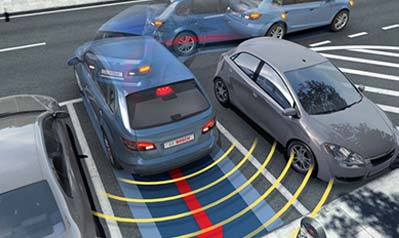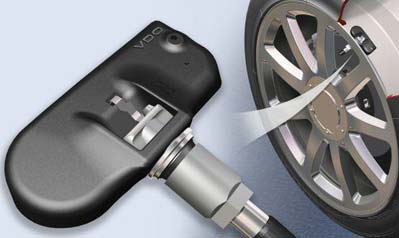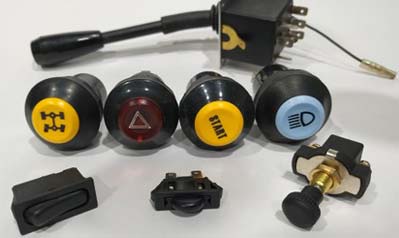Welcome to May Auto Parts Manufacturing & Supplying (MAPMS)
Welcome to May Auto Parts Manufacturing & Supplying (MAPMS)
The ignition system is an essential component of a car that ensures the engine starts and runs smoothly. Its main purpose is to generate the necessary sparks to ignite the fuel-air mixture in the combustion chambers. Without an ignition system, a car would not be able to start or operate. This system plays a crucial role in the overall performance and efficiency of the vehicle.
There are several types of ignition systems used in modern cars, each with its own unique features and advantages. The most common types are the traditional ignition system and the electronic ignition system.
The traditional ignition system, also known as a contact point ignition system, has been used in cars for many decades. It relies on a mechanical distributor, contact points, a coil, and spark plugs to generate sparks. In this system, the mechanical distributor rotates and opens and closes the contact points, interrupting the current flow to the coil. This interruption creates a high-voltage surge, which is then delivered to the spark plugs, igniting the fuel-air mixture in the combustion chambers. However, this system has certain limitations, including wear and tear of the contact points, which can result in reduced performance and frequent maintenance.
On the other hand, electronic ignition systems have become more prevalent in recent years due to their superior efficiency and reliability. Instead of contact points, electronic ignition systems use electronic control modules (ECMs), also known as ignition control modules, to control the timing and firing of the sparks. These systems eliminate the need for frequent maintenance and provide a more consistent spark, resulting in improved fuel efficiency and reduced emissions. The ECMs in electronic ignition systems monitor various engine parameters, such as engine speed, throttle position, and temperature, allowing for more precise control of the ignition timing. Furthermore, electronic ignition systems often incorporate additional features such as engine speed sensors and knock sensors, which further optimize the ignition timing based on real-time data. These systems are also more resistant to environmental factors such as moisture and vibrations, ensuring a more reliable and consistent operation.
The key differences between electronic and traditional ignition systems lie in their components and operation. In a traditional system, the contact points control the flow of current to the coil, which then generates high voltage that is delivered to the spark plugs. On the other hand, electronic ignition systems use ECMs to monitor engine parameters and control the timing and firing of the sparks.
Traditional ignition systems require regular maintenance to ensure the contact points are clean and properly adjusted. If the contact points wear out or become dirty, the ignition timing can be affected, leading to reduced performance and fuel efficiency. Electronic ignition systems, on the other hand, do not rely on contact points and are thus more durable and require less maintenance. The ECMs in electronic ignition systems continuously monitor engine conditions and adjust the ignition timing accordingly, providing optimal performance at all times.
Another significant difference between the two systems is their efficiency in generating sparks. Traditional ignition systems are limited by the mechanical nature of the contact points, resulting in gradual wear and decreased performance over time. Electronic ignition systems, on the other hand, consistently produce a strong and consistent spark, resulting in improved combustion, better fuel efficiency, and reduced emissions.
Whether you are replacing a faulty component or upgrading your ignition system, choosing the right ignition system parts is crucial for optimal performance. With the vast array of car ignition system parts available in the market, it is essential to select components that are compatible with your specific vehicle model.
Start by identifying the make, model, and year of your car, as different manufacturers may have specific ignition system requirements. Consult your vehicle's user manual or seek expert advice to determine the exact parts needed. Research reputable suppliers and choose high-quality parts to ensure durability and reliability.
Some of the key car ignition system parts you may encounter when maintaining or upgrading your system include the ignition module, ignition coil, spark plugs, and distributor cap. The ignition module, whether in a traditional or electronic system, controls the timing and firing of the sparks. The ignition coil is responsible for transforming the low-voltage current from the battery into high voltage needed to create a spark. The spark plugs, which are critical for ignition, require regular inspection and replacement if necessary. The distributor cap, found in traditional ignition systems, distributes the high-voltage current to the appropriate spark plug wires.
When choosing ignition system parts, ensure they are of high quality and meet the manufacturer's specifications. High-quality components will not only provide better performance but also last longer, saving you from frequent replacements.
In conclusion, the ignition system is a crucial part of any car, responsible for generating sparks that ignite the fuel-air mixture in the engine. By understanding the different types of ignition systems, such as traditional and electronic, and selecting the right ignition system parts for your specific vehicle model, you can ensure optimal performance and reliability. Regular maintenance of the ignition system will help to prolong its lifespan and keep your car running smoothly. Always consult your vehicle's manual or seek expert advice when working on the ignition system to ensure proper installation and operation of the chosen parts.
Popular Automotive Spare Parts
 Driving Forward: The Crucial Role of Ignition Coils in Automotive Efficiency
READ MORE >
Driving Forward: The Crucial Role of Ignition Coils in Automotive Efficiency
READ MORE >
 The Structure and Filtration Principle of Fuel Filters
READ MORE >
The Structure and Filtration Principle of Fuel Filters
READ MORE >
 Reasons Affecting Ignition Coil Lifespan and Maintenance Considerations
READ MORE >
Reasons Affecting Ignition Coil Lifespan and Maintenance Considerations
READ MORE >


